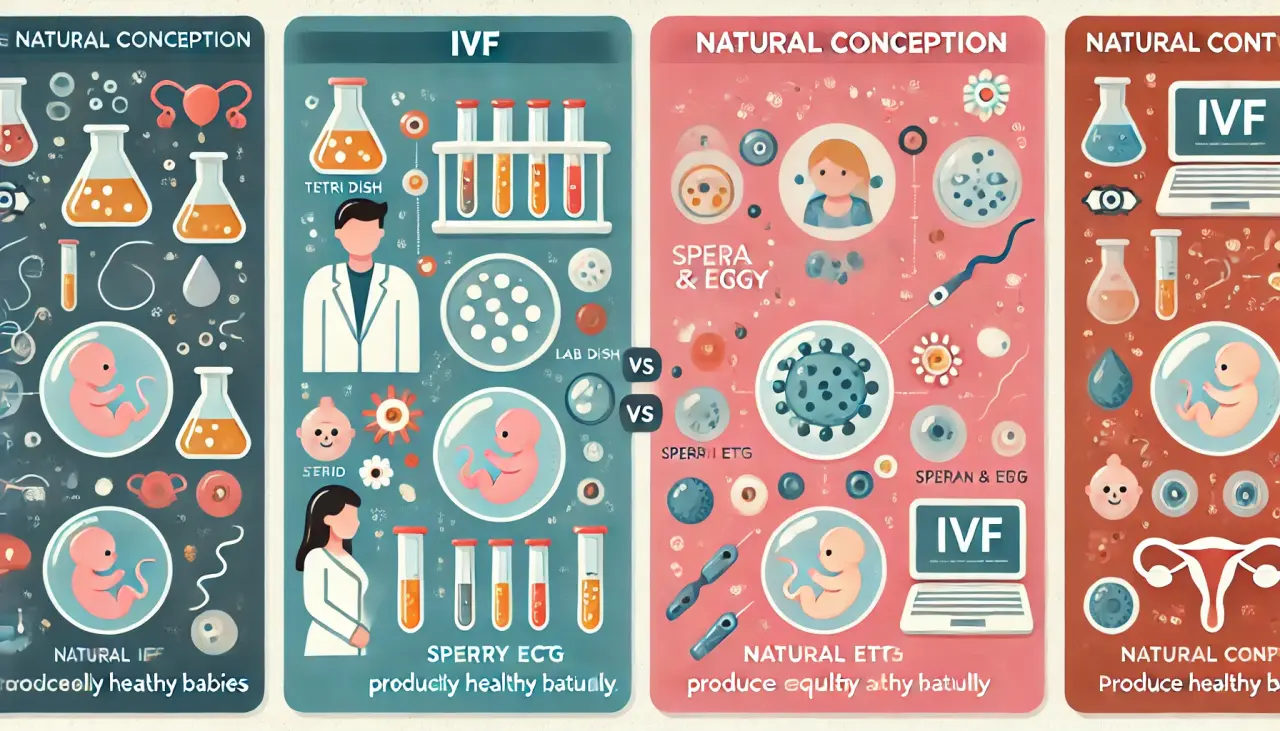
IVF vs Natural Conception: Are IVF Babies as Healthy as Naturally Conceived Babies? A Comprehensive Study
The debate over whether babies born through IVF vs natural conception are equally healthy has been ongoing for years. As Assisted Reproductive Technology (ART) becomes more common, many people wonder if there are long-term health differences between children born via IVF and those conceived naturally. A recent study published in the European Heart Journal addresses these concerns, offering evidence that babies born through ART are just as healthy as their naturally conceived counterparts.
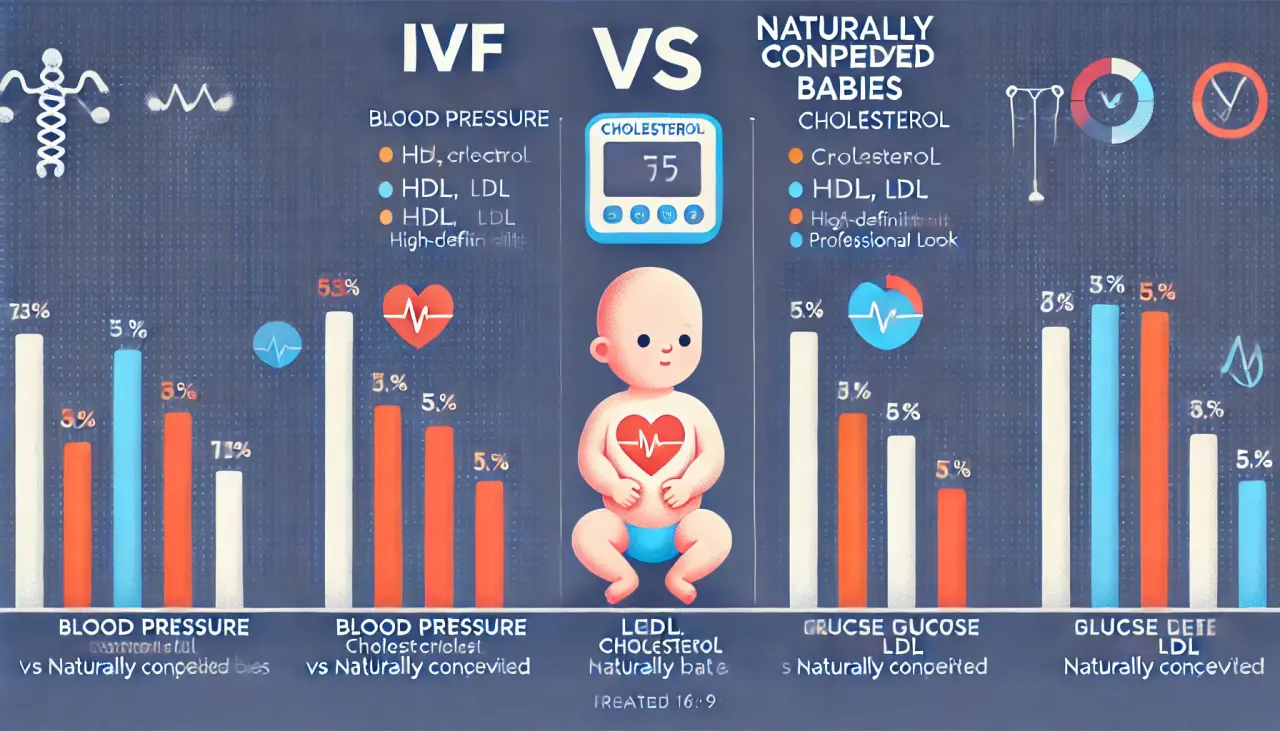
Key Findings from the Study
A groundbreaking study led by researchers from the University of Bristol, led by Ahmed Elhakeem, examined the health of 35,938 children, comparing those born via IVF and other ART methods with those conceived naturally. The study found minimal differences in cardiovascular and metabolic health indicators, including blood pressure, heart rate, cholesterol levels, insulin resistance, and blood sugar levels. These results suggest that IVF babies are just as healthy as those conceived through natural conception.
This study, the largest of its kind to date, provides important insights into natural conception vs IVF outcomes, helping to alleviate concerns about the long-term health of ART-born children.
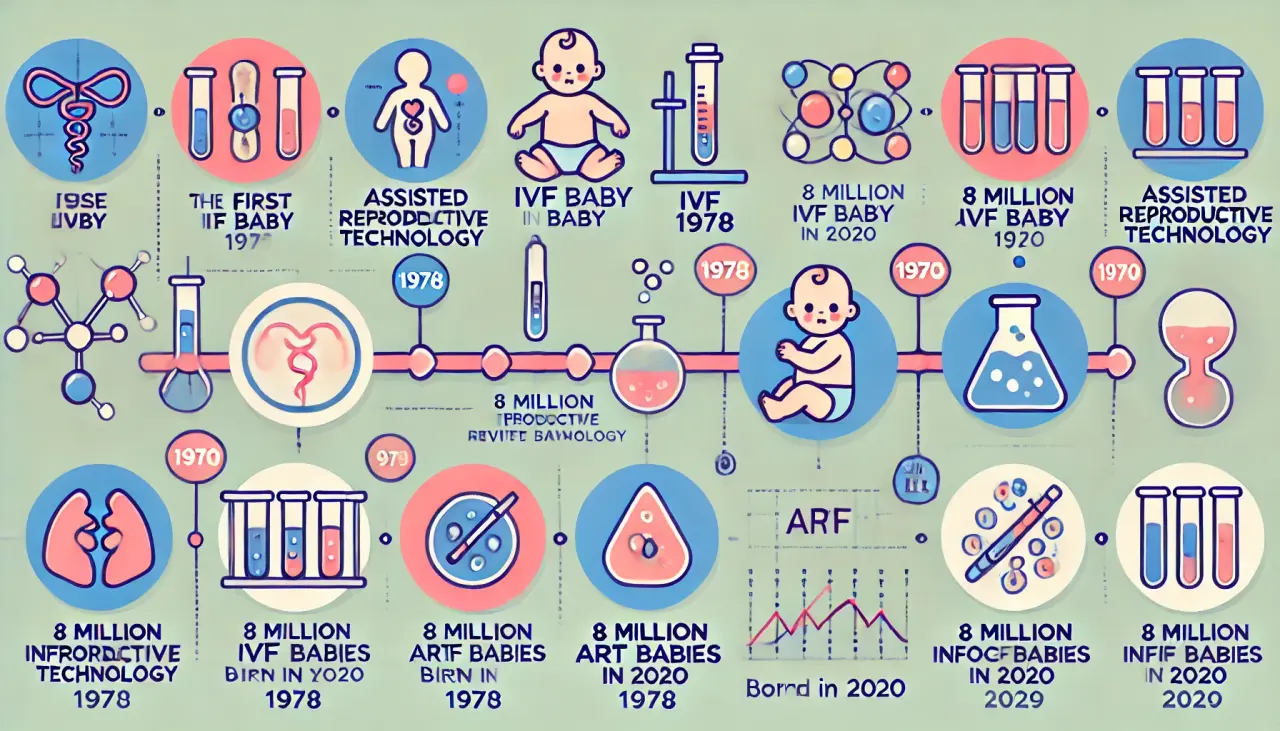
The Rise of ART and Its Impact
The first IVF baby was born in 1978, and since then, Assisted Reproductive Technology (ART) has rapidly advanced. Techniques such as In Vitro Fertilization (IVF) and Intracytoplasmic Sperm Injection (ICSI) have provided new possibilities for families struggling with infertility. By 2020, more than 8 million babies had been born via ART, with the numbers expected to continue increasing.
Despite the widespread use of ART, there remains limited research on the long-term effects of IVF vs natural conception on the cardiovascular and metabolic health of children born through these technologies. This study helps to fill that gap and provides valuable evidence to reassure parents and healthcare professionals alike.
The Study’s Data and Methodology
The meta-analysis included data from a broad range of countries, including the UK, France, Italy, Australia, and Singapore. It involved 35,938 participants, with 654 babies born through ART and the remainder conceived naturally. The study participants were born between 1984 and 2018, with most being born after 2002. The age range of the participants was from 13 months to 27 years old, with the majority being under 10 years old.
After adjusting for various factors, the research found no significant differences in key health indicators such as systolic and diastolic blood pressure, heart rate, blood glucose, insulin resistance, and HbA1c levels (a measure of long-term blood sugar control). This provides a strong indication that IVF babies are just as healthy as those conceived naturally.
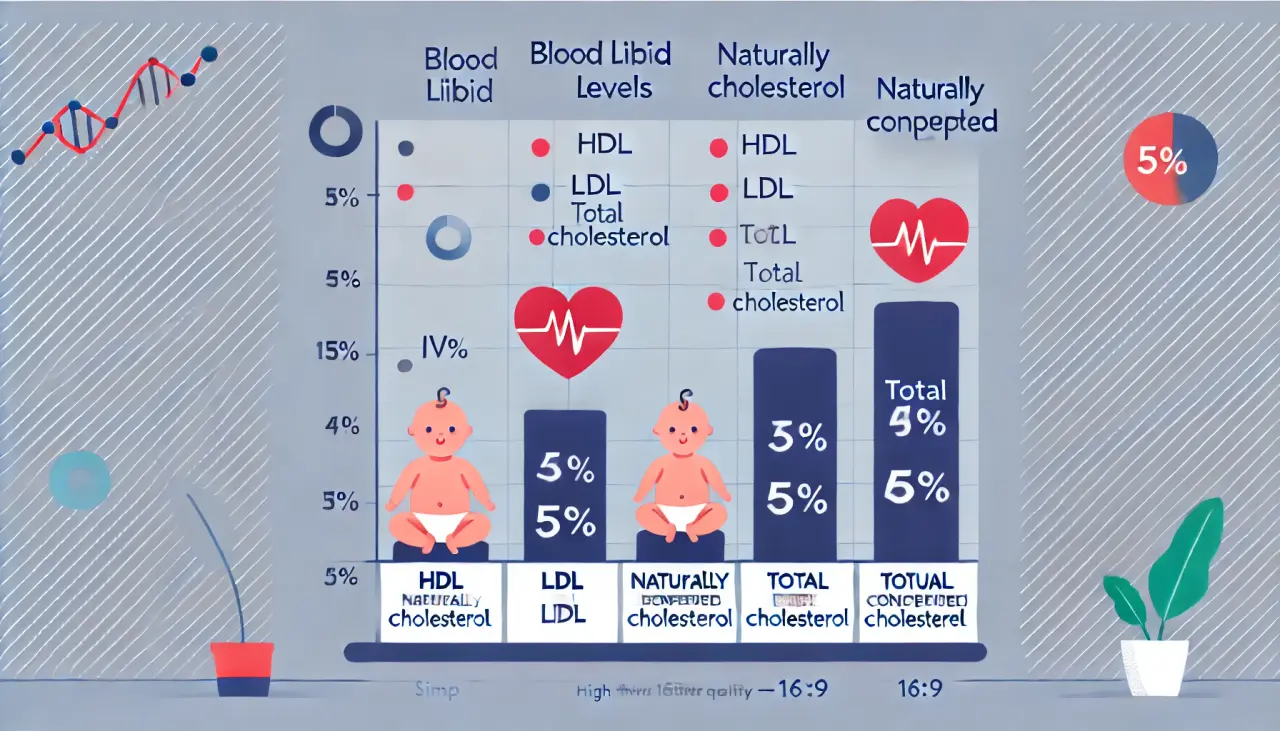
Blood Lipid Levels: Small Differences
While the overall findings were largely reassuring, there were some minor differences observed in the lipid profiles of ART babies. Specifically, children born through ART had slightly higher levels of total cholesterol (TC), low-density lipoprotein (LDL, or “bad” cholesterol), and high-density lipoprotein (HDL, or “good” cholesterol). These differences were small, with total cholesterol being 2.59% higher, HDL being 4.16% higher, and LDL being 4.95% higher. However, triglyceride levels did not differ significantly between the two groups.
These differences are unlikely to have a major impact on long-term health, though they suggest that there may be some minor variations in natural conception vs IVF outcomes that could require future research.
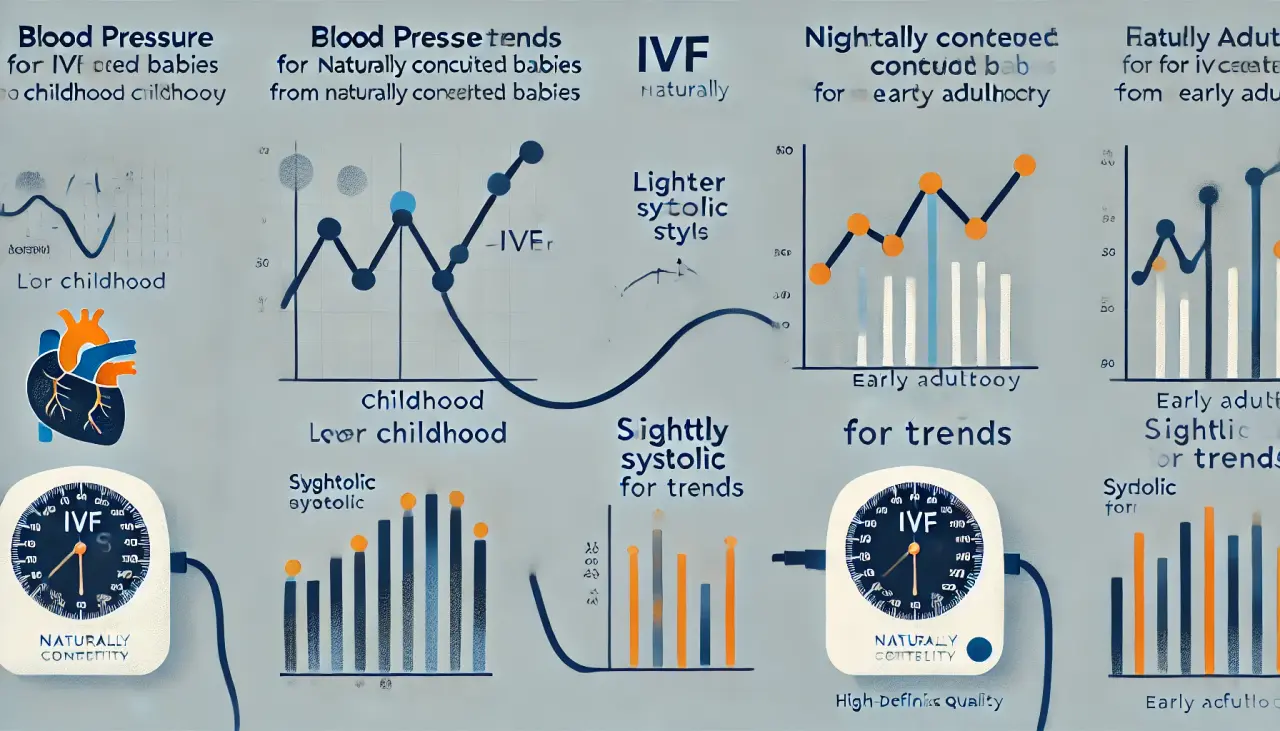
Age-Specific Findings
Further investigation into a subgroup of 17,244 participants (244 of whom were born via ART) revealed some age-specific differences in cardiovascular health. Most of these differences were not statistically significant, but some interesting trends were noted:
- In childhood, children born through ART had lower blood pressure compared to their naturally conceived counterparts.
- In adolescence, blood pressure levels were similar between the two groups.
- In early adulthood, individuals born via ART had slightly higher systolic blood pressure, though diastolic blood pressure remained similar across both groups.
Overall, while there were small variations in blood pressure, the differences were not substantial enough to suggest that IVF babies are less healthy than those conceived naturally.
Conclusion: IVF Babies Are Just as Healthy
The findings from this extensive study suggest that children born through ART, including IVF, do not show significant differences in key health indicators such as blood pressure, cholesterol, glucose metabolism, and insulin resistance when compared to children conceived naturally.
As the study’s authors, including Ahmed Elhakeem, point out, these results should provide reassurance for parents who have undergone ART or are considering it in the future. IVF vs natural conception may still raise some questions, but the evidence points to the fact that IVF babies are as healthy as those born through traditional methods.
While more research is needed to explore the long-term effects of ART, particularly as the population of ART-born children continues to grow, this study offers an optimistic outlook for parents and healthcare providers.